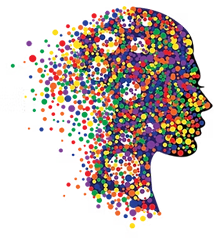
Alzheimer’s is something that impacts so many lives around the globe. This neurological condition impairs memory and cognitive function, directly affecting a person’s daily independence. For those who have dealt with this condition, they will know how overwhelming this diagnosis can be. Traditional Alzheimer’s treatment is heavily focused on dealing with the symptoms but not the cause, leading to very limited results.
Our Alzheimer’s support in NSW takes a slightly different approach. We use state-of-the-art technology to carry out a neuroscientific assessment, gathering substantial data that helps us understand the neurological changes a person is going through. Our QEEG brain mapping and neurostimulation are non-invasive techniques aimed at helping individuals preserve their cognitive function and support their memory networks. With the right treatment for Alzheimer’s disease, it is possible to create positive change and delay the negative effects.
Alzheimer’s is a very complex condition. Many individuals associate it with memory loss, but there is so much more to it than that. Alzheimer’s directly affects numerous domains of brain function, which are linked to language, emotional regulation, executive processing, motor control, and spatial awareness. Over time, these areas experience degeneration.
This is caused by a few variables. Amyloid plaques, which are abnormal deposits of protein, build up in the brain, clumping together to disrupt neural communication. Additionally, Tau tangles or neurofibrillary tangles can also build up in the brain, rendering a similar result. Eventually, this leads to Synaptic loss or neurodegeneration, which impairs critical areas of the brain associated with memory and learning. A person with Alzheimer’s will also experience a disruption of functional connectivity. Our Alzheimer’s care program in NSW starts with recognising how the condition impacts the mechanisms of the brain, enabling us to come up with a much more successful treatment than you might find elsewhere.
We begin our treatment process with Quantitative Electroencephalography (QEEG). This robust, highly accurate, and non-invasive process measures brainwave activity in various regions. If a person needs Alzheimer’s therapy and treatment, their QEEG will often show the following results.
An increase in theta and delta brainwaves, which are associated with memory and cognitive ability
A reduction in alpha and beta activity, which impacts alertness, attention, and social engagement
Frontal lobe dysfunction – This directly impacts a person’s ability to reason, plan, and control their emotions.
Disrupted synchrony, hindering communication between different areas of the brain
Though this is the common brain activity expected in a person with Alzheimer’s, it is essential to remember that everyone is different. We use comprehensive data gathered by QEEG brain mapping, run it through AI-assisted algorithms, carry out an independent component analysis, and generate a highly detailed neurological profile for each individual patient in our care.
This treatment is a non-invasive technique that delivers low-level electrical impulses to specific areas of the brain, aiming at boosting the neurological activity in each one. This Alzheimer’s treatment targets the dorsolateral prefrontal cortex for memory, the posterior cingulate involved in recall and awareness, and areas with excessive slow-wave dominance for faster brainwave activity.
As well as our Alzheimer’s treatment that directly assesses the impact it is having on the brain of the patient, we also incorporate personalised cognitive and psychological Alzheimer’s support in NSW. Therapy for Alzheimer’s disease helps a person with emotional processing and developing narrative techniques to improve their memory. This is a crucial aspect of Alzheimer’s treatment, enabling a person to maintain a better quality of life. The cognitive therapy for Alzheimer’s disease we provide will depend entirely on the results of their QEEG mapping, but it will likely include reminiscence therapy, validation therapy, and cognitive stimulation activities. We are also here to guide families through this difficult time, so we provide coaching aimed at strengthening care and communication.
Treatment for Alzheimer’s disease works best in the early stages while the condition is still progressive. Research shows that during this time, Alzheimer’s therapy can significantly slow the decline, improve cognitive health, and enhance overall emotional outcomes. If you are unsure when you should seek treatment, here are some signs to look out for.
Repeated memory lapses
Struggles with problem-solving
Difficulty Planning
Trouble with remembering or pronouncing words correctly
Mood swings
Becoming disinterested in hobbies and other activities
Confusion when it comes to familiar places or time management
When Alzheimer’s disease enters our lives, it brings tremendous uncertainty. However, with the right Alzheimer’s treatment, there is always hope. Our blend of neuroscience and Alzheimer’s therapy is uniquely integrative, providing much better odds and enhancing quality of life than other alternatives. Book a consultation today to see how we can help.
